In this article I will focus on the sleep disorder experienced by women when they reach menopause.
What is Menopause?
Menopause is also known as the ‘change of life‘. It is the end of the menstruation cycle (monthly periods) in women. What really happens is that a woman’s ovaries stop producing an egg every four weeks. She will no longer have a monthly period and, in all probabilities, be unable to have children.
Although women can experience the menopause in their 30s or 40s; the average age for a woman to reach the menopause is 52 years. If a woman experiences the menopause when she is under 45 years of age, it is known as a premature menopause.
Menstruation can sometimes stop suddenly when you reach the menopause. However, it is more likely that your periods will become less frequent, with longer intervals in between each one before they stop altogether.
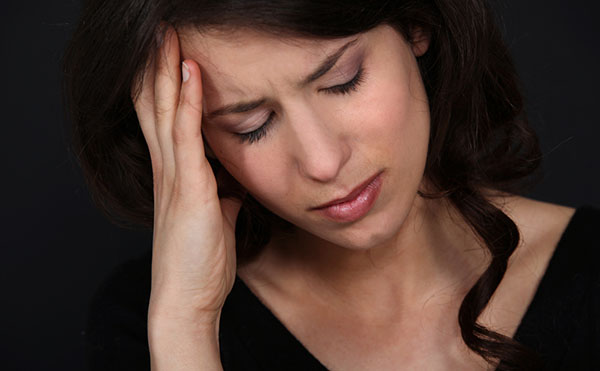
What is Perimenopause?
During peri-menopause you may notice that something is different – you may not know what, but you know it is. Peri-menopause refers to the years before menopause; hormone fluctuations can occur anywhere from the 2 to 10 years before a woman stops having her period. If you are aged 35-55, and you are still having periods but something is different about them, you are probably in peri-menopause.
The first sign of peri-menopause is often a change to your periods in some way. The time between periods, or the number of days your period lasts, or how much you menstruate – any, some or all of these could be altered.
Menopause and Insomnia
Many women going through menopause often experience certain sleep disorders / insomnia. Insomnia is the inability to fall asleep or stay asleep at night or waking up too early. This is a normal side effect of menopause and it is usually caused by symptoms of menopause, such as hot flashes.
Insomnia is a common complaint during peri-menopause too.
If you are experiencing either peri-menopause or menopause, then your insomnia will takes the form of an inability to sleep through the night. You would often wake up in the very early hours of the morning, and would also experience great difficulty in getting back to sleep.
Sometimes, these awakenings might also immediately precede a night sweat or at least a warm period wherein you would wish to throw off the covers. Sometimes you might wake up with your heart pounding and in a state of anxiety for no evident reason.
Some of you might also wake up due to some very vivid dreams. You would find it too hard to arrive at some valid reason for waking up 2, 3 or 4 a.m. and then find yourself unable to fall back to sleep for 20 or 40 minutes or even longer.
During menopause you might experience insomnia in other forms too. Symptoms of insomnia can include one or more of the following:
- Difficulty falling asleep
- Waking up frequently during the night with difficulty returning to sleep
- Waking up too early in the morning
- Non-refreshing sleep (feeling tired upon waking, and then throughout the day)
Why does Menopause cause Insomnia?
Science has been trying to understand this, as women are complex and each of us is unique as well. There is a complicated and delicate balance of hormones in women, such as estrogen, progesterone, testosterone, DHEA and pregnenolone. What we know is that hormones start to change with the aging process and often fall far out of balance in peri-menopause. This mismatch of hormone activity can impact the feel-good chemistry of the brain in many women and cause extreme emotions, including perimenopausal rage. It can also trigger hot flashes, night sweats, hair loss and restless sleep – just to name a few other symptoms.
Menopause is the result of a change in the balance of hormones in your body; sex hormones to be more precise in this case. Sleep is possible only when the body reaches and maintains a certain temperature. During menopause your body is unable to maintain a consistent temperature due to the fluctuating hormone activity.

Even if a hot flash isn’t apparent to you, you may find that your body temperature has risen to the point where continued sleep is impossible. It will then take a period of time before body temperature falls again and this will make getting back to sleep difficult for you.
A number of factors gang up in menopause to disturb you sleep. Hormone levels, health issues, lifestyle and situational stressors all play a role in whether you are able to get to sleep and then stay asleep too.
Broadly speaking, once you reach the age of 40 (and sometimes even before that), as a woman you may have trouble getting or staying asleep because of the following:
- Your declining hormone levels which impact your sleep/wake cycle.
- Hot flashes and night sweats that wake you up and may require you to say awake to recover or change bedding.
- Health issues that wake you including thyroid problems, pain, breathing difficulties or other reasons for waking or discomfort.
- Sleep apnea, which is related to both changing levels of estrogen and to weight gain – and both of these are common in menopause.
Life stressors – now these could be anything and everything from your ailing parents to surly teenagers, a divorce, job worries, money problems and family issues. All of these have the potential to keep you awake once you are awakened in the night in between your sleep.
- Depression and/or anxiety that may or may not be related to any of the above
- Diet and use of substances such as caffeine, nicotine, alcohol or supplements
- Medications, both prescription and over the counter, with side effects that keep you awake
- Poor “sleep hygiene” that sets you up to be awake when you want to be asleep.
How to Take Control of and Cure Insomnia caused due to Menopause?
There are a number of things that you can try for getting a better night’s sleep. I would recommend the following remedies, which I am sure will definitely be able to control your insomnia and also provide you some comfort:
- Herbal teas would help a lot of you women fall asleep more easily. You an also try sleeping potions such as Calms Forte, Snoozers, Easy Sleep, Valerian Root (a natural sedative), all of which are sold at health food stores.
- Certain herbal teas, especially Chamomile and Peppermint are useful too for curing insomnia related to menopause. It contains no caffeine, is pleasant to the taste and also produces relaxing effects.
- Taking melatonin supplements may also prove helpful to some of you. Melatonin is a substance that helps many older people get a better night’s sleep. As we mature, our bodies do not produce as much Melatonin as they once did. Hence, a supplement is helpful. But, you should always seek your doctor’s advice before taking this supplement.
- You should definitely give a try to the product developed by internist, gastroenterologist, nutritionist; Stephen Hold, M.D. called Sleep Naturally TM. It is an excellent remedy for sleep disorders and insomnia which contains many of the natural herbs in a proprietary blend. It is also available in most of the health food stores across the country.
- You should never try or even think of using alcohol for inducing sleep. Alcohol may help you relax and fall asleep, but it should not be used as a sleep aid because it has a rebound effect. It can disturb your sleep later and can cause you to awaken in the middle of the night due to frequent urination.
- You can however try having a cup of warm milk just before your sleep time. Milk contain a substance called tryptophan. The body uses this tryptophan to make serotonin, a chemical in the brain. Serotonin helps control your sleep patterns, appetite, pain and other functions. Milk does not contain enough tryptophan to change sleep patterns, but drinking a glass of milk just before bedtime may help you relax.
- I would however, not recommend over-the-counter tryptophan supplements, as they are susceptible of being associated with a rare condition called “eosinophilia myalgia syndrome”, and hence can result in more harm than good to you.
- If your insomnia persists and is seriously affecting your quality of life, you may even need a prescription for a mild tranquilizer to help you fall asleep. However, you should make sure that you do not start depending on these. Sleeping pills are meant for short periods of sleeplessness due to an unusually stressful event. Many sleeping pills are quickly addictive and the rebound insomnia when you stop taking them is worse than the initial insomnia.
- It is possible for some of you to simply get used to the idea that you will be awake many nights for some period of time. If you try to stay calm and do restful, relaxing things with/during that time, the resultant sleep loss may not be too dramatic. Some of you might even feel good about being grateful for the extra time to catch up with reading and have some quiet time to yourselves while the rest of the household sleeps oblivious to your blissful state!
- When lifestyle changes such as these fail to remedy insomnia, talk to your doctor. He or she may be able to prescribe temporary medicine to help you sleep and get you sleeping regularly. Your doctor can also rule out other conditions that may be causing your sleep problem. If depression is causing your sleep problems, doctor may prescribe an antidepressant.
- When your insomnia is a result of menopausal symptoms, you may also want to talk to your doctor about taking hormone therapy (HT). This therapy may help alleviate symptoms that are causing your sleep problem.
- Good sleeping habits like making your bedroom comfortable (dark, cool, with minimal or no noise) and maintaining a regular sleep-wake up cycle (going to bed and getting up at a fixed time daily) also help to check and cure your insomnia.
- As hormone levels even out on their own, your insomnia would also becomes less of a problem. You need to be aware of the fact that it is quite normal to have these early morning awakenings.
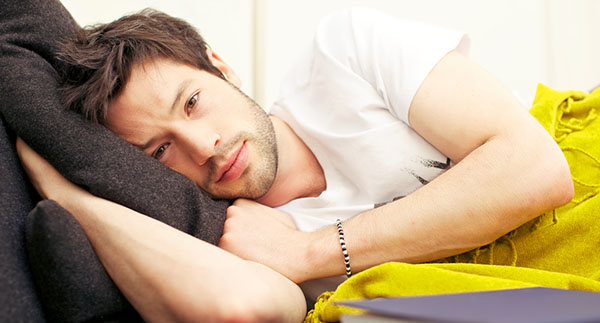
 Zoloft is not meant to treat insomnia. However, both Zoloft and insomnia are known for relating to each other because insomnia is one of the more common side effects of Zoloft. This relationship between the two is even more pronounced for those people who are taking Zoloft as a medication for their obsessive compulsive disorder.
Zoloft is not meant to treat insomnia. However, both Zoloft and insomnia are known for relating to each other because insomnia is one of the more common side effects of Zoloft. This relationship between the two is even more pronounced for those people who are taking Zoloft as a medication for their obsessive compulsive disorder.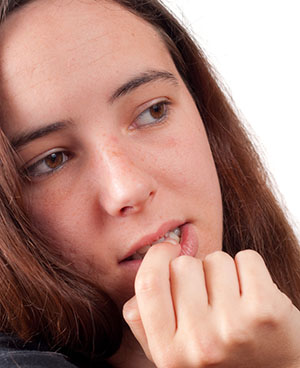 Although such drugs / medicines / sleep aids, which are also known as anti – depressants, appear to provide you some relief from your insomnia, they have their own side effects. These aids or anti – depressants do not get back your sleep in the natural way. Instead they coerce your brain to decrease its activities when the pills are popped and induce sleep in you. Also, it is very hard to get yourself out of the medication cycle as they have long-lasting side effects too. And even if you somehow manage to stop your medication, you might find your sleep fading away again.
Although such drugs / medicines / sleep aids, which are also known as anti – depressants, appear to provide you some relief from your insomnia, they have their own side effects. These aids or anti – depressants do not get back your sleep in the natural way. Instead they coerce your brain to decrease its activities when the pills are popped and induce sleep in you. Also, it is very hard to get yourself out of the medication cycle as they have long-lasting side effects too. And even if you somehow manage to stop your medication, you might find your sleep fading away again.
 All of us confront anxiety of varying degrees depending on the situation the anxiety is being caused of. Anxiety affects how you feel and behave. It is often a psychological and physiological state accompanied by various physical symptoms like reddening of cheeks/ears, sweating, shivering etc. Anxiety is also associated with feelings of restlessness, fatigue, problems in concentrating, and tension in the muscles. You would experience an ongoing worry and tension, have an unrealistic view of the problems and even feel edgy about anything.
All of us confront anxiety of varying degrees depending on the situation the anxiety is being caused of. Anxiety affects how you feel and behave. It is often a psychological and physiological state accompanied by various physical symptoms like reddening of cheeks/ears, sweating, shivering etc. Anxiety is also associated with feelings of restlessness, fatigue, problems in concentrating, and tension in the muscles. You would experience an ongoing worry and tension, have an unrealistic view of the problems and even feel edgy about anything.
 Stranger and Social Anxiety: This kind of anxiety is a common developmental stage in young people while meeting or interacting with unknown persons. I think you would now remember how you used to shy away whenever your mom or dad greeted their friends in the park or in the mall who you were not seeing too often or haven’t had seen before. Then your parents would coax you to say hello to the new person. And most of the times you would try to prevent yourself of such a situation of meeting someone you didn’t knew. Remember now!
Stranger and Social Anxiety: This kind of anxiety is a common developmental stage in young people while meeting or interacting with unknown persons. I think you would now remember how you used to shy away whenever your mom or dad greeted their friends in the park or in the mall who you were not seeing too often or haven’t had seen before. Then your parents would coax you to say hello to the new person. And most of the times you would try to prevent yourself of such a situation of meeting someone you didn’t knew. Remember now!
 Trazodone or Trazodone Hydrochloride is a common prescription drug used in the treatment of depression (which is also known as clinical or major depression). A number of conditions can be treated in an “off – label” fashion with Trazodone, insomnia being one of them. Here “Off Label” means that the drug is not purposely manufactured for those purposes; it is not FDA approved for the use; but it is commonly used regardless for its proven effectiveness.
Trazodone or Trazodone Hydrochloride is a common prescription drug used in the treatment of depression (which is also known as clinical or major depression). A number of conditions can be treated in an “off – label” fashion with Trazodone, insomnia being one of them. Here “Off Label” means that the drug is not purposely manufactured for those purposes; it is not FDA approved for the use; but it is commonly used regardless for its proven effectiveness.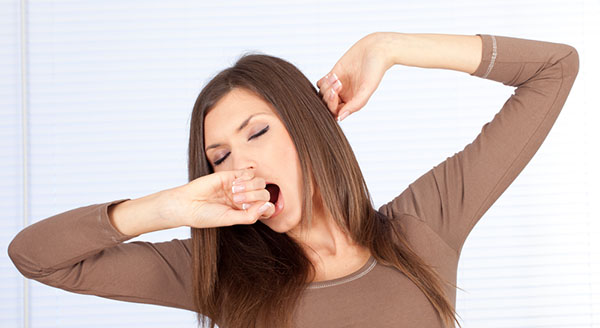
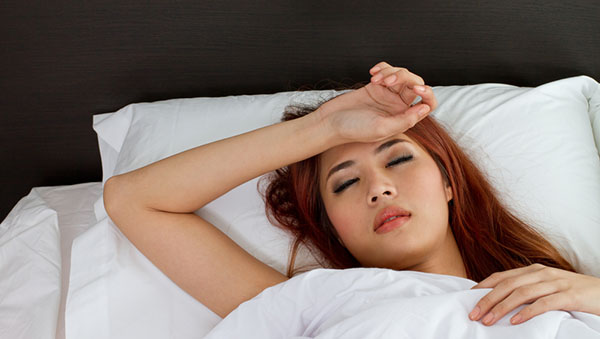
 Insomnia, and it doesn’t matters of what kind, does not have just one cause or, for that matter, one solution.
Insomnia, and it doesn’t matters of what kind, does not have just one cause or, for that matter, one solution.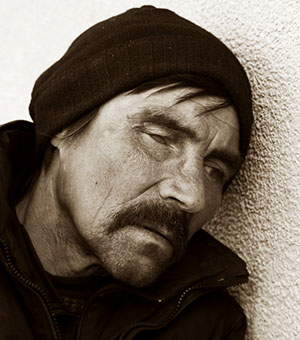 Sporadic Fatal Insomnia (SFI) is a rare genetic disease found in humans. It is a subtype of human prion disease, whose clinical and neuropathological phenotype is very similar to Familial Fatal Insomnia (FFI), which too is a genetic and also a hereditary sleep disorder.
Sporadic Fatal Insomnia (SFI) is a rare genetic disease found in humans. It is a subtype of human prion disease, whose clinical and neuropathological phenotype is very similar to Familial Fatal Insomnia (FFI), which too is a genetic and also a hereditary sleep disorder. The “Oxford Dictionary” defines a prion as “an infectious agent composed primarily of protein“. These prions build up in the brain and, over time, destroy the nerve cells. Creating what are best described as sponge-like holes in the brain; prions attack the thalamus – the region of the brain that is responsible for regulating your sleep.
The “Oxford Dictionary” defines a prion as “an infectious agent composed primarily of protein“. These prions build up in the brain and, over time, destroy the nerve cells. Creating what are best described as sponge-like holes in the brain; prions attack the thalamus – the region of the brain that is responsible for regulating your sleep.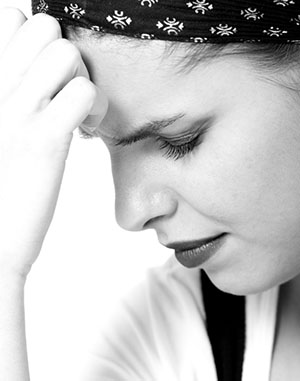 Although scientists had described a probable case of SFI in 1997, the disease was definitively established in 1999 by both Mastroianni et al and Parchi et al utilizing the term Sporadic Fatal Insomnia.
Although scientists had described a probable case of SFI in 1997, the disease was definitively established in 1999 by both Mastroianni et al and Parchi et al utilizing the term Sporadic Fatal Insomnia. In late 1983, Italian neurologist/sleep expert Dr Ignazio Roiter received a patient at the University of Bologna hospital’s sleep institute. The man, known only as Silvano, decided in a rare moment of consciousness to be recorded for future studies and to have his brain harvested for research in hopes of finding a cure for future victims.
In late 1983, Italian neurologist/sleep expert Dr Ignazio Roiter received a patient at the University of Bologna hospital’s sleep institute. The man, known only as Silvano, decided in a rare moment of consciousness to be recorded for future studies and to have his brain harvested for research in hopes of finding a cure for future victims.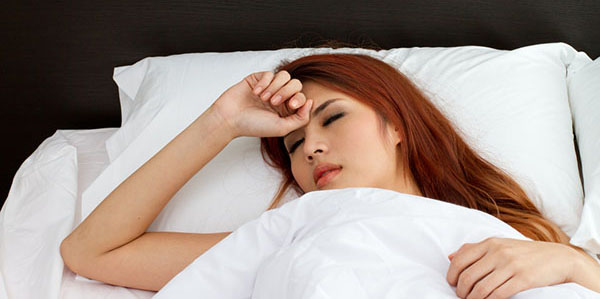
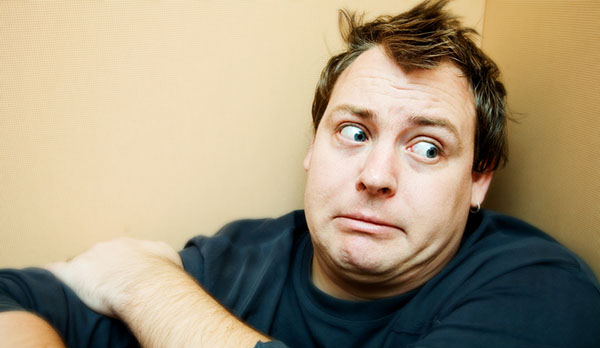
 If it is your child who is suffering from this condition, then it may appear to you that your child is awake during a sleep terror. The child will appear confused, be inconsolable and/or unresponsive to your attempts to communicate with him/her. During this period your child may not even recognize other family members familiar to him/her. The child may thrash around in bed and does not respond to comforting even by the parents.
If it is your child who is suffering from this condition, then it may appear to you that your child is awake during a sleep terror. The child will appear confused, be inconsolable and/or unresponsive to your attempts to communicate with him/her. During this period your child may not even recognize other family members familiar to him/her. The child may thrash around in bed and does not respond to comforting even by the parents.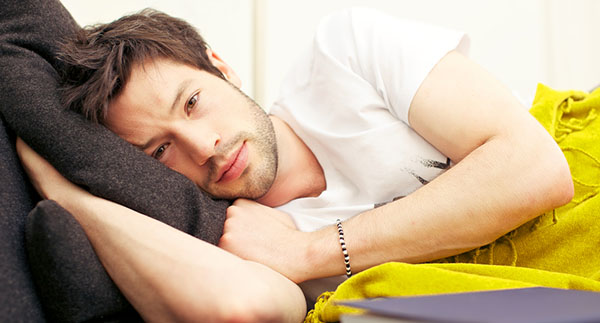
 Like issues related to finance, yes; this could be one of the major worries for a majority of us. Worrying about the income and expenditure gap; paying off the debts; household expenses; children’s education; retirement plans; insurance; and what not. Such things create a very strong stress levels in our minds as we keep thinking about them; sometimes even dream about them, and then it all results in our sleep disorder.
Like issues related to finance, yes; this could be one of the major worries for a majority of us. Worrying about the income and expenditure gap; paying off the debts; household expenses; children’s education; retirement plans; insurance; and what not. Such things create a very strong stress levels in our minds as we keep thinking about them; sometimes even dream about them, and then it all results in our sleep disorder.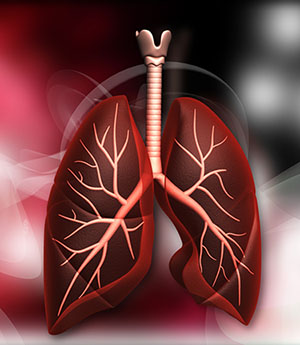 The word Apnea comes from the Greek dictionary and literally means “loss of wind”. We all are aware of the fact that breathing is what keeps us alive. We breathe in oxygen through our mouth into our lungs. The oxygen is then dissolved in our blood and then pumped to all parts of our body by our heart. During one breathing cycle we inhale oxygen and exhale carbon dioxide. This process continues even while we are sleeping. There are some sensors in a portion of our brain which control the amount of breathing throughout our sleep automatically and we don’t even have to worry about maintaining our breathing pattern while we take a sound sleep.
The word Apnea comes from the Greek dictionary and literally means “loss of wind”. We all are aware of the fact that breathing is what keeps us alive. We breathe in oxygen through our mouth into our lungs. The oxygen is then dissolved in our blood and then pumped to all parts of our body by our heart. During one breathing cycle we inhale oxygen and exhale carbon dioxide. This process continues even while we are sleeping. There are some sensors in a portion of our brain which control the amount of breathing throughout our sleep automatically and we don’t even have to worry about maintaining our breathing pattern while we take a sound sleep.
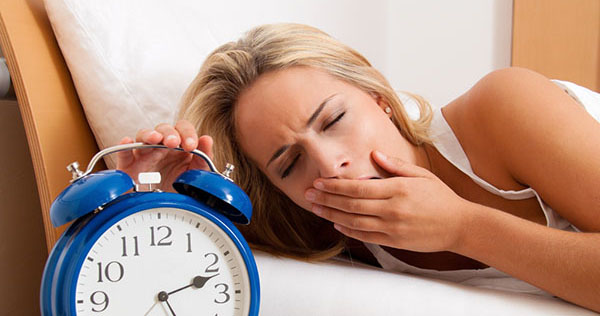
 The doctor would definitely suggest some changes to your current lifestyle and daily activities like reducing alcohol intake; losing weight; sleeping on your side than on your back; and quitting smoking. He may also suggest some nasal sprays or medicines, if needed.
The doctor would definitely suggest some changes to your current lifestyle and daily activities like reducing alcohol intake; losing weight; sleeping on your side than on your back; and quitting smoking. He may also suggest some nasal sprays or medicines, if needed.